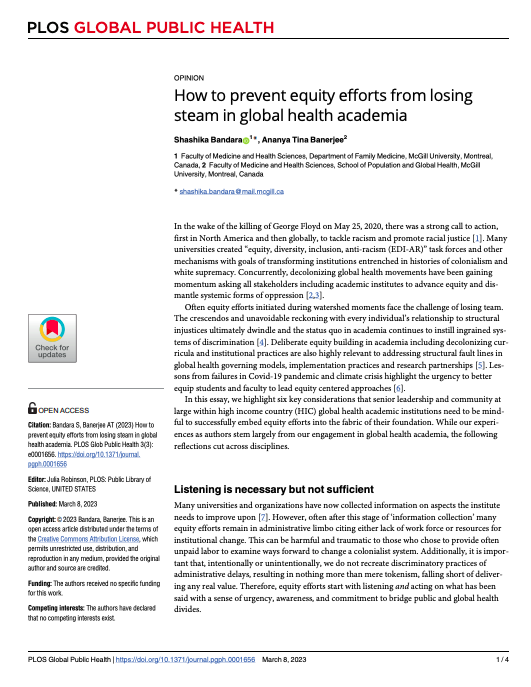How to prevent equity efforts from losing steam in global health academia
In the wake of the killing of George Floyd on May 25, 2020, there was a strong call to action, first in North America and then globally, to tackle racism and promote racial justice . Many universities created “equity, diversity, inclusion, anti-racism (EDI-AR)” task forces and other mechanisms with goals of transforming institutions entrenched in histories of colonialism and white supremacy. Concurrently, decolonizing global health movements have been gaining momentum asking all stakeholders including academic institutes to advance equity and dismantle systemic forms of oppression .
Often equity efforts initiated during watershed moments face the challenge of losing team. The crescendos and unavoidable reckoning with every individual’s relationship to structural injustices ultimately dwindle and the status quo in academia continues to instill ingrained systems of discrimination. Deliberate equity building in academia including decolonizing curricula and institutional practices are also highly relevant to addressing structural fault lines in global health governing models, implementation practices and research partnerships . Lessons from failures in Covid-19 pandemic and climate crisis highlight the urgency to better equip students and faculty to lead equity centered approaches.
In this essay, we highlight six key considerations that senior leadership and community at large within high income country (HIC) global health academic institutions need to be mindful to successfully embed equity efforts into the fabric of their foundation. While our experiences as authors stem largely from our engagement in global health academia, the following reflections cut across disciplines.
Membres et équipe SHERPA
Ananya Banerjee
Professeure adjointe, Department of Epidemiology, Biostatistics and Occupational Health, Université McGill

